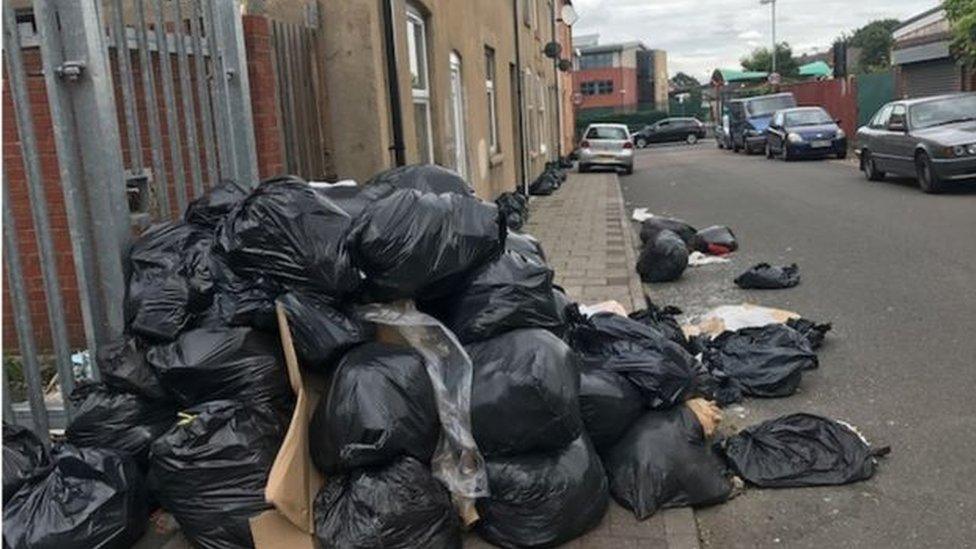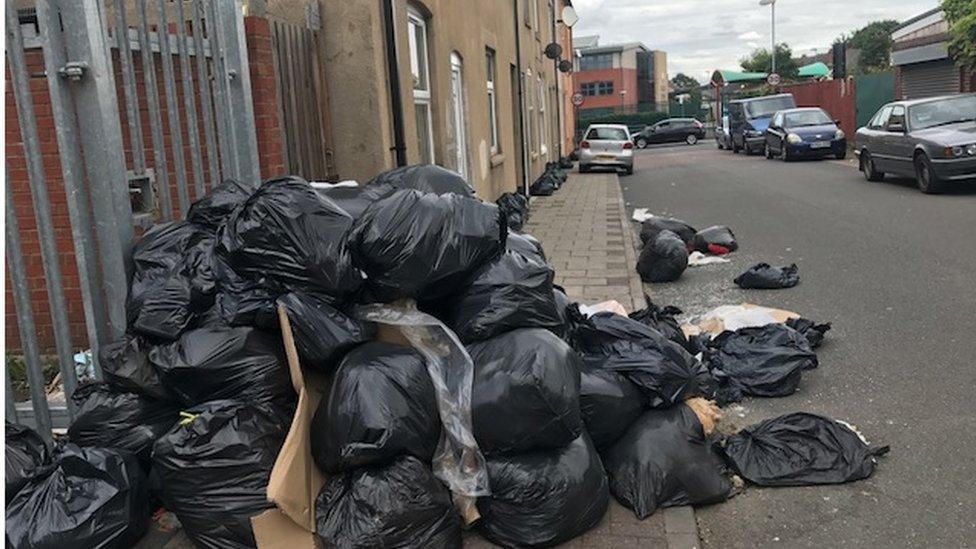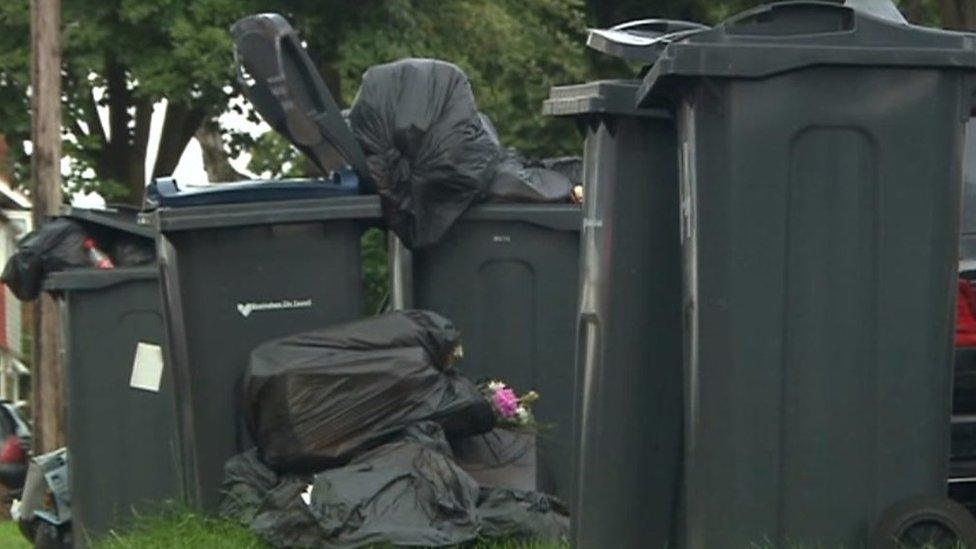Birmingham bin strike: Report warns deal 'unaffordable'
- Published

Rubbish piled up on the streets of Alum Rock in Birmingham during the dispute
The deal that ended the bin strike which saw mountains of waste pile up on Birmingham's streets is unaffordable, a report warns.
The seven-week strike action was suspended last week amid negotiations between Unite and the city council.
But the breakthrough could be unworkable as the council report says, external giving ground on workers' demands is not financially viable.
It cost the authority up to £300,000 a week to clear the backlog of rubbish.
See more stories from across Birmingham and the Black Country here

Refuse workers started strike action on 30 June
The dispute centres on a restructuring plan that Unite says is threatening the jobs of more than 120 refuse collectors, while the council says it will modernise the service and save £5m a year.
The strike was suspended on 16 August after the council agreed certain posts would not be made redundant and conciliatory service Acas said bin collections could resume.
A statement said the authority had accepted the workers' case and restored the jobs of grade three workers, who are responsible for safety at the back of refuse vehicles.
However, a report due to be discussed by the council's cabinet on Thursday said the proposed reorganisation - which prompted the industrial action - was needed to enable spending to be contained within the budget.
Current working arrangements and crew structure had not delivered value-for-money savings targets and "will not meet the business need of the future", the report said.

Analysis: Kathryn Stanczyszyn, political reporter
The update report into the ongoing bins dispute has raised eyebrows for more than one reason.
It's unusual to see so candid a publication in the public domain - but this report said quite clearly there's absolutely no room for manoeuvre when it comes to the pay grading issue that refuse workers have been striking over.
Why? Not only because of the direct savings of more than £5m the council wants to make - but because keeping the grade three binmen as they are could lead to a raft of equal pay claims that the council can't afford.
The report stops short of saying a deal was done prematurely, but it certainly recommends there should be no movement whatsoever on the council's original plans, which led to the strike in the first place.
Not what Acas and Unite were saying last week, or what the binmen want to hear.
One told me today that the mood is very downbeat following the deferral of this crucial vote - because he has no desire to go back on strike, but believes it's almost inevitable with such potentially deep division between council officers and the promise of a resolution.
So next Friday really is crunch time, the day when new contracts must be issued, and when senior councillors must decide whether they vote with officers risking more devastating strike action, or against them - and then have to face some other potentially serious consequences.
The leader, and much of the city, will be hoping they reach some kind of deal before then.


Waste spilling from bin bags in Avon Street, Sparkhill
The report said a decision to not proceed with the deletion of grade three roles would result in an increase in costs of £600,000 in a full year alone.
"However, the more significant potential financial implications arising from a decision not to continue with the implementation of the new operating model arise from a significant increase in the risks in relation to further equal pay claims," it added.
The meeting to discuss the report was deferred until 1 September.
- Published15 August 2017

- Published14 August 2017

- Published8 August 2017

- Published7 August 2017

- Published7 August 2017
